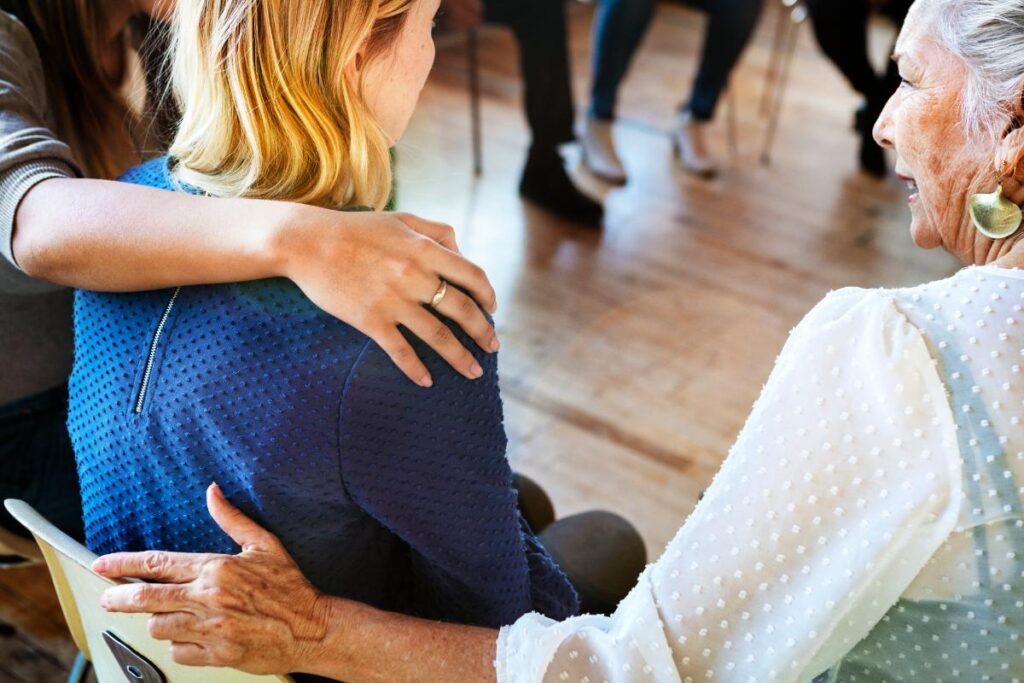People often come to addiction recovery feeling worried that their loved ones won’t forgive the mistakes they made while using drugs or alcohol. Fortunately, rebuilding relationships is possible, and a family therapy program can help. Call Insight Recovery Centers today at 828.826.1376 for more information about family therapy.
Rebuilding Relationships After Rehab
Facing your mistakes and making amends are essential steps in the recovery process. Sometimes, those mistakes involve the people you care about the most. The road to recovery can be long, and not everyone in your life will be ready to repair a relationship just because you are.
When drug or alcohol use becomes the top priority in a person’s life, relationships can suffer in many ways, including:
- Broken trust
- Financial problems
- Frequent arguments
- Increased stress levels
- Infidelity, stealing, lying, and other types of dishonesty
- Worries over health issues and other risky behaviors
- Abuse, aggression, or violent behavior
Partners, friends, siblings, and parents often have to take on extra responsibilities when someone they care about has substance use disorder (SUD). They may feel too emotionally and physically exhausted to focus on healing relationships at the beginning of the process.
It can take time, but if you continue to do the work of recovery and show them you are serious about living sober, most people will be open to building new, healthy relationships with you.
Your Choices Rebuild Trust
Some of an individual’s actions during active substance use can be difficult to forgive. Family therapy provides a safe, supportive environment where all participants are encouraged to speak their truth. Having a mental health professional present to mediate if things get tense makes everyone feel more secure about the process.
What happens when a person you care about refuses to attend therapy with you? Should you give up on the relationship? If a relationship has become toxic or puts your sobriety at risk, sometimes the best thing is to let go.
However, every person is capable of change. It may be helpful to think of the relationship as being “on pause.” Perhaps there will be a time in the future when the person is ready to do the difficult work of relationship repair.
In the meantime, self-forgiveness is key in the recovery process. Without it, feelings of guilt and shame pile up and can eventually trigger a relapse. In therapy, you can work on self-forgiveness even if some people in your life are not interested in rebuilding relationships.
Making amends to those you’ve hurt, being accountable for your actions, and staying committed to working through emotions, even when they’re difficult, will increase self-forgiveness. As others see your emotional growth and commitment to sober living, they may become more open to rebuilding relationships.
Some strategies to focus on include:
- Join a sober support group
- Talk openly about your recovery
- Don’t minimize other people’s feelings or the impact of your behavior
- Respect feelings as they arise, including yours
- Be a trustworthy person and keep your commitments and promises
- Work to improve your communication skills
- Listen to others without making excuses or shifting the focus to your challenges
Let your loved ones know you’re open to attending family therapy sessions with them whenever they are ready.
Living Sober Is the Best Example: Get Help from Insight Recovery Centers
It is possible to rebuild healthy bonds with others. In fact, repaired relationships will likely be healthier and happier than they have been in a long time. Family therapy helps loved ones rebuild relationships free from codependent behavior. If you’d like to learn more about our family therapy programs, call Insight Recovery Centers today at 828.826.1376.

